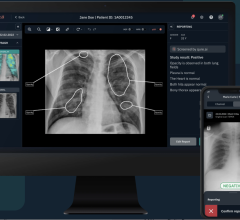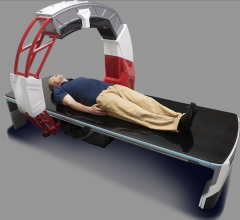September 13, 2007 - While the American College of Chest Physicians (ACCP) came out this week in opposition to CT screening for lung cancer, Lung Cancer Alliance (LCA) reiterated its support for the screening test, which can detect lung cancer at its earliest most treatable stage for those at high risk.
"Mammograms for breast cancer faced enormous opposition for decades and there is still heated debate over screening of women under the age of 50. And there are reams of papers showing no mortality benefit for PSA testing for prostate cancer," said Laurie Fenton Ambrose, President of Lung Cancer Alliance.
"These scientific debates are not new, especially when it comes to interpreting statistics about the true benefit of screening," she said. "However it is disappointing and frankly shocking that the ACCP would flatly oppose CT screening for those at high risk for lung cancer when even the government health agency responsible for setting diagnostic guidelines is more balanced," she said.
The U.S. Preventive Services Task Force neither supports nor opposes screening for lung cancer, a neutral stance that it also takes on PSA testing for prostate cancer and breast self-exams for breast cancer.
"It is difficult to take the ACCP guidelines seriously when they are dismissive of screening and only endorse massages and acupuncture for a disease as deadly as lung cancer," she said.
The issue of early detection is critical in lung cancer which is the biggest cancer killer, taking more lives each year than breast, prostate, colon and kidney cancers combined. By the time symptoms, such as a cough or bloody sputum, appear it is usually too late and in most cases death occurs in less than a year.
Since last year, LCA has raised questions and concerns about the validity of underlying assumptions and modeling being used to provide the basis for the ACCP practice guidelines.
Harvey Pass MD, Chief of Thoracic Surgery and Thoracic Oncology at NYU School of Medicine, LCA Board member and chair of LCA's Medical and Scientific Advisory Board said: "These guidelines simply dismiss the mounting evidence which continues to mature from the largest international, protocol-driven screening effort (I-ELCAP) showing that CT screening in a high risk population has the potential to reverse the current 15% five year survival rate."
For more information: www.LungCancerAlliance.org


 August 09, 2024
August 09, 2024 








